 W
WCommunist terrorism is terrorism carried out in the advancement of, or by groups who adhere to, communism and its related ideologies, such as Leninism, Marxism–Leninism, Trotskyism, and Maoism. Historically, communist terrorism has sometimes taken the form of state-sponsored terrorism, supported by communist nations such as the Soviet Union, China, North Korea and Cambodia. In addition, non-state actors such as the Red Brigades, the Front Line and the Red Army Faction have also engaged in communist terrorism. These groups hope to inspire the masses to rise up and begin a revolution to overthrow existing political and economic systems. This form of terrorism can sometimes be called red terrorism or left terrorism.
 W
WAction directe was a French far-left terrorist group which committed a series of assassinations and violent attacks in France between 1979 and 1987. Members of Action directe considered themselves libertarian communists who had formed an "urban guerrilla organization". The French government banned the group. During its existence, AD's members murdered 12 people, and wounded a further 26. It associated at various times with the Red Brigades (Italy), Red Army Faction, Prima Linea (Italy), Armed Nuclei for Popular Autonomy (France), Communist Combatant Cells, Lebanese Armed Revolutionary Factions, Irish National Liberation Army et cetera.
 W
WAir Rhodesia Flight 825 was a scheduled passenger flight that was shot down by the Zimbabwe People's Revolutionary Army (ZIPRA) on 3 September 1978, during the Rhodesian Bush War. The aircraft involved, a Vickers Viscount named the Hunyani, was flying the last leg of Air Rhodesia's regular scheduled service from Victoria Falls to the capital Salisbury, via the resort town of Kariba.
 W
WThe Armed Peasant Association, alternatively known as Armed Campesino Group and Armed Peasant Grouping – People's Army (ACA–EP), is a far-left rebel group that takes part in the insurgency in Paraguay. Formed in 2014 as splinter faction of the Paraguayan People's Army (EPP) by two brothers, Albino and Alfredo Jara Larrea, ACA began to decline almost immediately after its foundation as result of repeated raids and arrests by the Paraguayan security forces. After the death of most of its members and leaders in 2016, the group became defunct. It was refounded in 2017, however, by two sisters of the Jara Larrea brothers and a former member of the "Army of Marshal López" (EML), another insurgent group.
 W
WThe Asama-Sansō incident was a hostage crisis and police siege at a mountain lodge near Karuizawa in Nagano Prefecture, Japan, which lasted from February 19 to February 28, 1972. The police rescue operation on the final day of the standoff was the first marathon live television broadcast in Japan, lasting 10 hours and 40 minutes.
 W
WThe assassination of Sergio Ramelli was a political crime that took place in Milan, Italy, in 1975, during a period of violent and often deadly confrontations between rightists and leftists in the country at the time.
 W
WCesare Battisti is an Italian revolutionary, former member of the Armed Proletarians for Communism (PAC), a far-left militant and terrorist group which committed acts of illegality and crimes in Italy in the late 1970s during the period known as the "Years of Lead". He was sentenced to life imprisonment in Italy for four homicides. He fled Italy first to France and then to Mexico before settling in Brazil where he lived as a free man until an order of extradition issued in December 2018. He then fled to Santa Cruz in Bolivia, where he was arrested in 2019 by an Italian team of Interpol and extradited to Italy where is currently under arrest. He is also a fiction author, having written 15 novels.
 W
WThe Bhutan Tiger Force (BTF) is the armed wing of the Communist Party of Bhutan (Marxist–Leninist–Maoist).
 W
WOn 17 January 2019, a vehicle was driven into the General Santander National Police Academy in Bogotá, Colombia. The truck forced its way into the facility, hit a wall and detonated, killing 22 people and injuring 68 others. Suicide attacks are unusual in Colombia. The car contained about 80 kilograms (180 lb) of pentolite. It was the deadliest attack on the Colombian capital since the 2003 El Nogal Club bombing and the first terrorist attack on the capital since the 2017 Centro Andino bombing. The National Liberation Army (ELN) accepted responsibility for the attack and justified it as a response to the bombings made by the Colombian government during the unilateral ceasefire.
 W
WThe Cambodian genocide was the systematic persecution and killing of Cambodians by the Khmer Rouge under the leadership of Communist Party of Kampuchea general secretary Pol Pot, who radically pushed Cambodia towards an entirely self-sufficient agrarian socialist society. It resulted in the deaths of 1.5 to 2 million people from 1975 to 1979, nearly a quarter of Cambodia's 1975 population.
 W
WThe 2018 Colombia police stations attacks occurred on January 27, 2018, when two hand grenades were thrown at police stations in Barranquilla and Soledad. About five officers died and 48 people were wounded, the latter of which included some civilians. On January 28, two policemen died after an attack on a police station in Santa Rosa del Sur, bringing the death toll to seven. All the dead were serving officers in the National Police of Colombia.
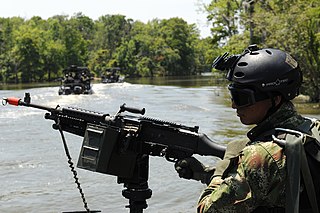 W
WThe Colombian conflict began on May 27, 1964, and is a low-intensity asymmetric war between the government of Colombia, far-right paramilitary groups, crime syndicates, and far-left guerrilla groups such as the Revolutionary Armed Forces of Colombia (FARC), the National Liberation Army (ELN) and the Popular Liberation Army (EPL), fighting each other to increase their influence in Colombian territory. Some of the most important international contributors to the Colombian conflict include multinational corporations, the United States, Cuba, and the drug trafficking industry.
 W
WCellules Communistes Combattantes was a Communist Belgian urban guerrilla organization.
 W
WThe Communist Party of India (Maoist) is a Maoist communist political party and militant organization in India which aims to overthrow the "semi-colonial and semi-feudal Indian state" through people's war. It was founded on 21 September 2004, through the merger of the Communist Party of India (Marxist–Leninist) People's War and the Maoist Communist Centre of India (MCCI). The CPI (Maoist) are often referred to as the Naxalites in reference to the Naxalbari insurrection conducted by radical Maoists in West Bengal in 1967. CPI (Maoist) has been designated as a terrorist organisation in India under the Unlawful Activities (Prevention) Act since 2009.
 W
WThe Communist Party of the Philippines is a far-left revolutionary organization and communist party in the Philippines, formed by Jose Maria Sison on 26 December 1968. It is designated as a terrorist group by the United States Department of State through Executive Order No. 13224 together with Sison and the New People's Army (NPA) in 2002. The European Union, through Council Decision (CSFP) 2019/1341, renewed the terrorist designation of the CPP-NPA in 2019, though the European Union's second highest court ruled in September 2009 to delist Sison as a "person supporting terrorism" and reversed a decision by member governments to freeze assets. According to the US' Central Intelligence Agency (CIA) World Factbook, the CPP and its armed wing, the NPA, aims to destabilize the Philippines' economy and overthrow the national government.
 W
WThe 2010 Dantewada bus bombing occurred on 17 May 2010 when a bus hit a landmine 50 km away from Dantewada, in Chhattisgarh's Dantewada district. Fatalities reports range from 31 to 44, including several Special Police Officers (SPOs) and civilians.
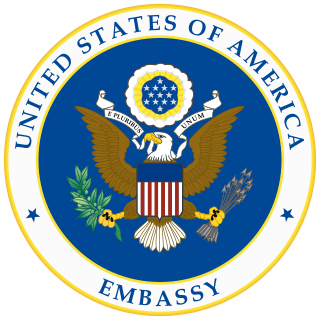 W
WThe Embassy of the United States in Athens is the embassy of the United States in Greece, in the capital city of Athens. The embassy is charged with diplomacy and Greece–United States relations. The United States Ambassador to Greece is the head of mission of the United States to Greece.
 W
WThe First of October Anti-Fascist Resistance Groups was a Spanish clandestine Marxist–Leninist group aiming for the formation of a Spanish Republican state.
 W
WForças Populares 25 de Abril was a far-left terrorist group operating in Portugal between 1980 and 1987. Most of its members had previously been active in the Revolutionary Brigades, an armed group with links to the Revolutionary Party of the Proletariat. A total of 13 people were killed by the FP-25 as a result of armed attacks, bombings and confrontations with the police during bank robberies and escape attempts. Notable attacks included the 1984 firing of four mortar rounds at the U.S. Embassy in Lisbon and the 1985 bombing of six NATO ships, including the USS Richard E. Byrd, also in Lisbon.
 W
WThe Front de libération du Québec (FLQ) was a militant Quebec separatist group. Founded in the early 1960s with the aim of establishing an independent and socialist Quebec through violent means, the FLQ was considered a terrorist group by the Canadian government. It conducted a number of attacks between 1963 and 1970, which totaled over 160 violent incidents and killed eight people and injured many more. These attacks culminated with the Montreal Stock Exchange bombing in 1969 and the October Crisis in 1970, the latter beginning with the kidnapping of British Trade Commissioner James Cross. In the subsequent negotiations, Quebec Labour Minister Pierre Laporte was kidnapped and murdered by a cell of the FLQ. Public outcry and a federal crackdown subsequently ended the crisis and resulted in a drastic loss of support for the FLQ, with a small number of FLQ members being granted refuge in Cuba.
 W
WIn the 2008 Imphal bombings, at least 17 people were killed and more than 30 were injured on 21 October 2008.
 W
WThe Japanese embassy hostage crisis began on 17 December 1996 in Lima, Peru, when 14 members of the Túpac Amaru Revolutionary Movement (MRTA) took hostage hundreds of high-level diplomats, government and military officials and business executives. They were attending a party at the official residence of the Japanese ambassador to Peru, Morihisa Aoki, in celebration of Emperor Akihito's 63rd birthday. Although the crisis took place at the ambassadorial residence in San Isidro rather than at the embassy proper, it is often referred to as the "Japanese embassy" hostage crisis.
 W
WKangleipak Communist Party is a political party in Manipur. Named after Kangleipak, the ancient name of Manipur, it was initially led by the communist ideologues — Ibohanbi and Ibopishak. The Kangleipak Communist Party (KCP) had been engaged in an armed struggle to achieve sovereignty for Manipur since the 1980s.
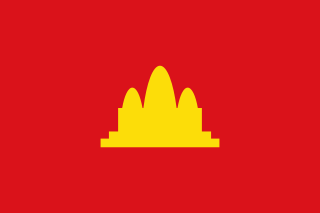 W
WThe Khmer Rouge is the name that was popularly given to members of the Communist Party of Kampuchea (CPK) and by extension to the regime through which the CPK ruled Cambodia between 1975 and 1979. The name was coined in the 1960s by prime minister Norodom Sihanouk to describe his country's heterogeneous, communist-led dissidents, with whom he allied after his 1970 overthrow.
 W
WThe Laju incident, also known as the Laju ferry hijacking, occurred on 31 January 1974 in Singapore. Four armed men from the terrorist groups Japanese Red Army and Popular Front for the Liberation of Palestine attacked the Shell oil refinery complex on Pulau Bukom and later hijacked the ferryboat Laju and took its five crew members hostage. The crisis was resolved after the Singapore government provided the terrorists safe passage to the Middle East in exchange for the release of the hostages.
 W
WSwami Lakshmanananda Saraswati and four of his disciples were murdered on 23 August 2008 in the State of Odisha in India. Saraswati was a Hindu monk and a Vishva Hindu Parishad leader. Seven tribal people of Christian religion and one Maoist leader were convicted in the case.
 W
WThe Maoist Communist Party of Manipur is a Maoist political party in Manipur which aims "to establish a communist society through armed revolutionary war." The Maoist Communist Party of Manipur also intends at liberating the people of Manipur from whom they view as "colonial India."
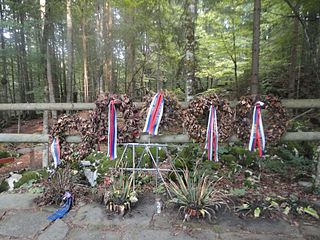 W
WMass graves in Slovenia were created in Slovenia as the result of extrajudicial killings during and after the Second World War. These clandestine mass graves are also known as "concealed mass graves" or "silenced mass graves" because their existence was concealed under the communist regime from 1945 to 1990.
 W
WThe May 19th Communist Organization, also variously referred to as the May 19 Coalition, May 19 Communist Coalition, and various alternatives of M19CO, was a US-based organization formed by members of the Weather Underground Organization. The group was originally known as the New York chapter of the Prairie Fire Organizing Committee (PFOC), an organization devoted to promoting the causes of the Weather Underground legally, as part of the Prairie Fire Manifesto's change in Weather Underground Organization strategy, which demanded both aboveground mass movements and clandestine organizations. The role of the clandestine organization would be to build the "consciousness of action" and prepare the way for the development of a people's militia. Concurrently, the role of the mass movement, the above-ground Prairie Fire Collective, would include the support for and the encouragement of armed action. Such an alliance would, according to Weather, "help create the 'sea' for the guerrillas to swim in." The M19CO name was derived from the birthdays of Ho Chi Minh and Malcolm X. The May 19 Communist Organization was active from 1978 to 1985. M19CO was a combination of the Black Liberation Army and the Weather Underground. It also included members of the Black Panthers and the Republic of New Africa (RNA).
 W
WThe 1974 Mitsubishi Heavy Industries bombing was a terrorist bombing of the Mitsubishi Heavy Industries headquarters in Tokyo, Japan on 30 August 1974, killing eight people and injuring 376 others. The bombing was committed by the East Asia Anti-Japan Armed Front, a radical far-left anti-Japanese organization, against Mitsubishi Heavy Industries for supplying the United States against North Vietnam during the Vietnam War.
 W
WThe kidnapping of Aldo Moro, also referred to in Italy as Moro Case, was a seminal event in Italian political history.
 W
WNandigram Violence was violence occurred in Nandigram, East Midnapore, West Bengal, India, in 2007 due to the land acquisition for a project by the Government of West Bengal led by the Communist Party of India (Marxist) to create special economic zone (SEZ). The policy led to an emergency in the region, and 14 people died in a police shooting. According to CID reports, the Nandigram violence saw a Maoist insurgency in the area during the protests. But West Bengal Home Secretary himself stated that the presence of Maoists could not be confirmed in Nandigram. The Central Bureau of Investigation later exonerated the Buddhadeb Bhattacharya government of responsibility for the shootings. But supporting the violence in Nandigram by his own party workers, Buddhadeb Bhattacharya had said earlier "They have been paid back in the same coin."
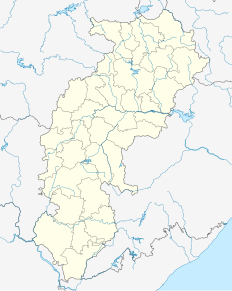 W
WOn 25 May 2013, Naxalite insurgents of the Communist Party of India (Maoist) attacked a convoy of Indian National Congress leaders in the Jhiram Ghati, Darbha Valley in the Sukma district of Chhattisgarh, India. The attack caused at least 27 deaths, including that of former state minister Mahendra Karma and Chhattisgarh Congress chief Nand Kumar Patel. Vidya Charan Shukla, a senior Congress leader, succumbed to his injuries on 11 June 2013.
 W
WThe Naxalite–Maoist insurgency, officially referred to as the Left Wing Extremism (LWE), is an ongoing conflict between Maoist groups known as Naxalites or Naxals; a group of far-left radical communists, supportive of Maoist political sentiment and ideology, and the Indian government. The influence zone of LWE is called the Red corridor, which has been steadily declining in terms of geographical coverage and number of violent incidents, and in 2021 it was confined to the 25 "most affected" locations and 70 "total affected" districts across 10 states in two coal rich, remote, forested hilly clusters in and around the Dandakaranya-Chhattisgarh-Odisha region and the tri-junction area of Jharkhand-Bihar and-West Bengal. The Naxalites have frequently targeted tribal, police and government workers in what they say is a fight for improved land rights and more jobs for neglected agricultural laborer and the poor.
 W
WThe October Crisis refers to a chain of events that started in October 1970 when members of the Front de libération du Québec (FLQ) kidnapped the provincial Deputy Premier Pierre Laporte and British diplomat James Cross from his Montreal residence. These events saw the Prime Minister Pierre Trudeau invoking the War Measures Act for the first time in Canadian history during peacetime.
 W
WThe Paraguayan People’s Army is a communist guerrilla movement that officially operates in Paraguay since March 1, 2008, although its antecedents go back as far back as the decade 1990, acting at that time as the "clandestine armed wing" of Patria Libre.
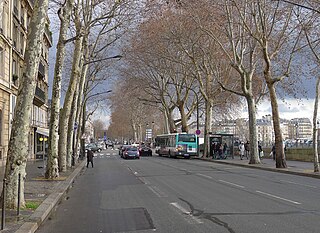 W
WThe far-left Direct Action (AD) terror group detonated a bomb at the headquarters of the Brigade de répression du banditisme (BRB) police division in Paris, France, on 9 July 1986. It killed the division's chief inspector, Marcel Basdevant, and injured 22 other officers. The group claimed responsibility two days later.
 W
WThe internal conflict in Peru is an ongoing armed conflict between the Government of Peru and the Maoist guerilla group Shining Path. The conflict began on 17 May 1980, and from 1982 to 1997 the Túpac Amaru Revolutionary Movement waged its own insurgency as a Marxist–Leninist rival to the Shining Path. It is estimated that there have been between 50,000 and 70,000 deaths, making it the bloodiest war in Peruvian history, since the European colonization of the country.
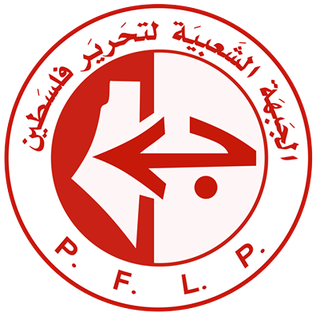 W
WThe Popular Front for the Liberation of Palestine is a secular Palestinian Marxist–Leninist and revolutionary socialist organization founded in 1967 by George Habash. It has consistently been the second-largest of the groups forming the Palestine Liberation Organization, the largest being Fatah.
 W
WPrima Linea was an Italian left-wing terrorist group, active in the country from the late 1970s until the early 1980s.
 W
WThe Primavalle fire was a political arson-attack that occurred in Rome in 1973. It resulted in the death of the two people.
 W
WThe Red Brigades was a far-left armed organization and guerrilla group based in Italy responsible for numerous violent incidents, including the abduction and murder of former Prime Minister Aldo Moro, during the Years of Lead.
 W
WThe Red Terror in Soviet Russia was a campaign of political repression and executions carried out by the Bolsheviks, chiefly through the Cheka, the Bolshevik secret police. It started in late August 1918 after the beginning of the Russian Civil War and lasted until 1922.
 W
WThe Red Terror in Spain is the name given by historians to various acts of violence committed from 1936 until the end of the Spanish Civil War by sections of nearly all the leftist groups. News of the rightist military uprising in July 1936 allegedly unleashed a politicidal response, and no Republican controlled region escaped systematic and anticlerical violence, although it was minimal in the Basque Country. The violence consisted of the killing of tens of thousands of people, attacks on the Spanish nobility, business owners, industrialists, and politicians and supporters of the conservative parties, as well as the desecration and burning of monasteries, convents, and churches.
 W
WThe Revolutionary Cells were a self-described "urban guerrilla" organisation, that was active between 1973 and 1995, and was described in the early 1980s as one of West Germany's most dangerous leftist terrorist groups by the West German Interior Ministry. According to the office of the German Federal Prosecutor, the Revolutionary Cells claimed responsibility for 186 attacks, of which 40 were committed in West Berlin.
 W
WRevolutionary Organization 17 November, also known as 17N or the 17 November Group, was a Greek far-left urban guerrilla organization formed in 1975 and led by Alexandros Giotopoulos. 17N conducted an extensive urban guerrilla campaign against the Greek state, banks, and businesses, as well as American, Turkish, and British targets. The organization committed 103 known armed robberies, assassinations, and bombing attacks, during which 23 people were killed. 17N was designated a terrorist group by Greece, Turkey, the United Kingdom and the United States, and disbanded in 2002 after the arrest and trial of many of its members. The flag of 17 N kind of resembled the Vietnamese flag, except for the label 17 N right inside the star.
 W
WRevolutionary terror, also referred to as revolutionary terrorism or a reign of terror, refers to the institutionalized application of force to counterrevolutionaries, particularly during the French Revolution from the years 1793 to 1795. The term "Communist terrorism" has also been used to describe the revolutionary terror, from the Red Terror in the Russian Soviet Federative Socialist Republic (RSFSR) to the reign of the Khmer Rouge and others. In contrast, "reactionary terror", such as White Terror, has been used to subdue revolutions.
 W
WThe Sainbari Murder occurred in 1970 in the house of Sain family in Bardhaman in West Bengal in India, where several people were killed.
 W
WThe Tarata bombing, known also as the Miraflores bombing or Lima bombing, was a terrorist attack carried out in Tarata Street, located in Miraflores District of Lima, Peru, on 16 July 1992, by the Shining Path terrorist group. The blast was the deadliest Shining Path bombing during the Internal conflict in Peru and was part of a larger bombing campaign in the city.
 W
WThe Tezno massacre was the mass killing of POWs and civilians of the Independent State of Croatia (NDH) that took place in Tezno near Maribor, after the end of World War II in Yugoslavia. The killings were perpetrated by units of the Yugoslav Partisans in May 1945, following the Bleiburg repatriations. Summary executions began on 19 May when first prisoners arrived to the Tezno forest from nearby prison camps and continued until 26 May. Most of the bodies were buried in a several kilometers long antitank trench, which the Yugoslav authorities concealed and kept secret.
 W
WThe Tupamaros West-Berlin (TW) were a small German Marxist organization which carried out a series of bombings and arsons at the end of the 1960s. In 1969 Dieter Kunzelmann, Georg von Rauch, and a few others traveled to Jordan to train at a Fatah camp, forming the Tupamaros on their return to Germany. The group took their name from the Uruguayan Tupamaros. The TW had a core membership of about 15 people.
 W
WThe 1983 U.S. Senate bombing was a bomb explosion at the United States Senate on November 7, 1983, motivated by United States military involvement in Lebanon and Grenada. The attack led to heightened security in the DC metropolitan area, and the inaccessibility of certain parts of the Senate Building. Six members of the radical far-left Resistance Conspiracy were arrested in May 1988 and charged with the bombing, as well as related bombings of Fort McNair and the Washington Navy Yard which occurred April 25, 1983, and April 20, 1984, respectively.
 W
WThe Years of Lead is a term used for a period of social and political turmoil in Italy that lasted from the late 1960s until the late 1980s, marked by a wave of both far-left and far-right incidents of political terrorism.
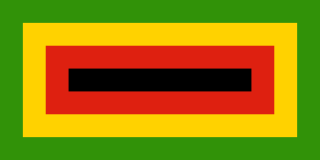 W
WZimbabwe African National Liberation Army (ZANLA) was the military wing of the Zimbabwe African National Union (ZANU), a militant African nationalist organisation that participated in the Rhodesian Bush War against white minority rule of Rhodesia.
 W
WThe Zimbabwe African National Union (ZANU) was a militant organisation that fought against white minority rule in Rhodesia, formed as a split from the Zimbabwe African People's Union (ZAPU). ZANU split in 1975 into wings loyal to Robert Mugabe and Ndabaningi Sithole, later respectively called ZANU–PF and ZANU - Ndonga. These two sub-divisions ran separately at the 1980 general election, where ZANU-PF has been in power ever since, and ZANU – Ndonga a minor opposition party.
 W
WZimbabwe People's Revolutionary Army (ZIPRA) was the military wing of the Zimbabwe African People's Union (ZAPU), a Marxist–Leninist political party in Rhodesia. It participated in the Rhodesian Bush War against white minority rule of Rhodesia. ZIPRA was formed during the 1960s by the nationalist leader Jason Moyo, the deputy of Joshua Nkomo.